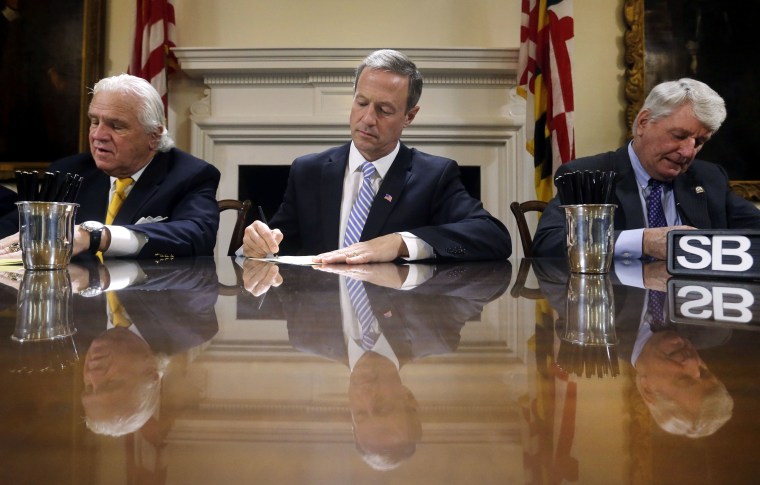Gov. Martin O’Malley on Wednesday said he will commute the sentences of Maryland’s four remaining death-row inmates so that they will serve life in prison without the possibility of parole.
The four condemned men were caught in a legal limbo for nearly two years after the state legislature voted to abolish the death penalty. Though the inmates were sentenced prior to the ban, O’Malley said in a statement Wednesday that carrying out “essentially un-executable sentences” did not serve a greater good.
RELATED: O’Malley gets out ahead of Clinton on torture issue
The out-going Democratic governor is using his final few weeks in office to follow through on a years-long effort to bring an end to capital punishment. O’Malley came out publicly in opposition to the death penalty in 2007. Two years later he tried, and ultimately failed the first time, to see capital punishment in his state repealed. It wasn’t until 2013 that Maryland became the 18th state to ban the death penalty.
“In my judgment, leaving these death sentences in place does not serve the public good of the people of Maryland — present or future,” O’Malley said in a statement.
With the governor's move, Maryland breaks from two other states — New Mexico and Connecticut — that have abolished capital punishment yet still have inmates serving out time on death row. No other state with capital punishment bans on the books has followed through with executing previously sentenced death-row inmates.
Maryland Attorney General Douglas Gansler in November gave room for O’Malley to commute the sentences after he concluded that it was “illegal and factual impossible” to carry out executions. Meanwhile The Washington Post editorial board this week argued that altering the condemned men’s sentences was not only the right move for the governor, but also the “sensible thing to do.”
O’Malley’s announcement Wednesday notably checks off one of the final items left on his agenda. It also could further build momentum for the Democrat's possible 2016 presidential run. O’Malley is following through on an issue that he championed from start to finish, while also pushing through a wave of last-minute items before Gov.-elect Larry Hogan, a Republican, takes over in January.
In his statement, O'Malley noted that he had either met with or spoken to family members of the victims murdered by the convicted criminals. Allowing the death sentences to stand would only draw out more pain to those survivors through a lengthy and unpredictable appeals process, O'Malley argued.
“It is my hope that these commutations might bring about a greater degree of closure for all of the survivors and their families,” the governor said.
